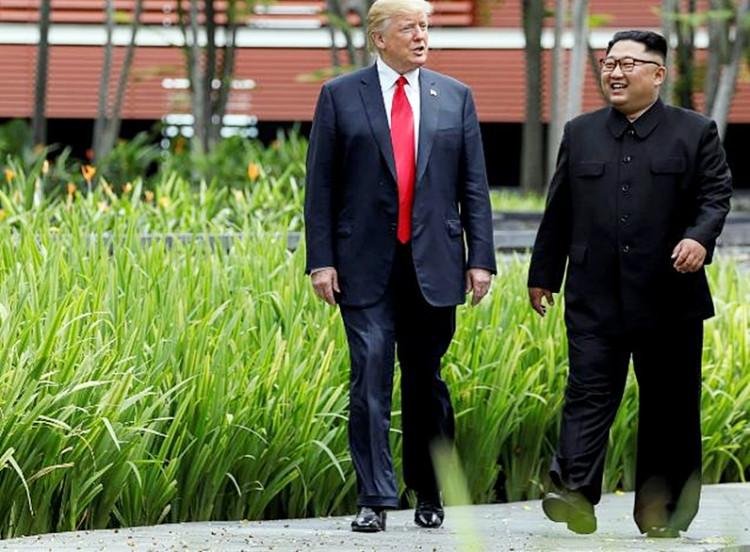Should the United States re-open negotiations with North Korea over "denuclearization" and what this vexed concept really connotes, it will do so from a position of strategic and diplomatic inferiority due to president Donald Trump's diplomatic gaffes at the Singapore summit last June 12.
Park Strategies, an American public policy and business development think tank based in New York City, said the U.S. is now worse off than it was before the Singapore summit between Trump and North Korean dictator Kim Jong-un.
Figuratively speaking, Trump shot the U.S. in the foot not once but several times in his meeting with Kim, effectively crippling whatever position the U.S. will take in future talks with North Korea. Sean King, senior vice president at Park Strategies, believes America's position will be compromised by the undeniable realities that both China and Russia have either lifted or eased their economic sanctions on North Korea thereby giving Pyongyang an economic lifeline.
Trump's unwarranted and unilateral cancellation of a military exercise between the U.S. and South Korea in August is seen by Pyongyang as a sign of Trump's weakness and Trump's willingness to do anything to gain the approval of his core supporters in the Republican Party. Trump got nothing in return from North Korea for this rash decision. The scrapping of this military exercise also unnerved Japan, said, King.
The end result of Trump's series of grievous diplomatic errors is that the United States is now in a far weaker position vis-à-vis North Korea than before Trump met Kim. King also noted that even during the June summit, both sides seemed to have misunderstood what it was they had agreed on in that contentious summit declaration.
King is certain Trump thought Kim said he'd give up his nukes and then work toward some kind of peace deal. Kim, however, first wanted an end to the U.S.-South Korea alliance and then he'd denuclearize -- maybe. King said part of the problem leading to Trump's seeming naivety was a difference of opinion about strategy within the White House.
On one hand, there's a professional White House staff taking a hard line with North Korea. The novice Trump, however, felt he could make a deal on his own based on personal chemistry. The end result of this dichotomy at the top was that it's like the U.S. has "two parallel administrations and North Korea is trying to exploit that," said King.
But should the U.S. and North Korea meet again, with or without Trump and Kim being present, King said the U.S. should take a tougher stance against China and North Korea if denuclearization is indeed a priority.






